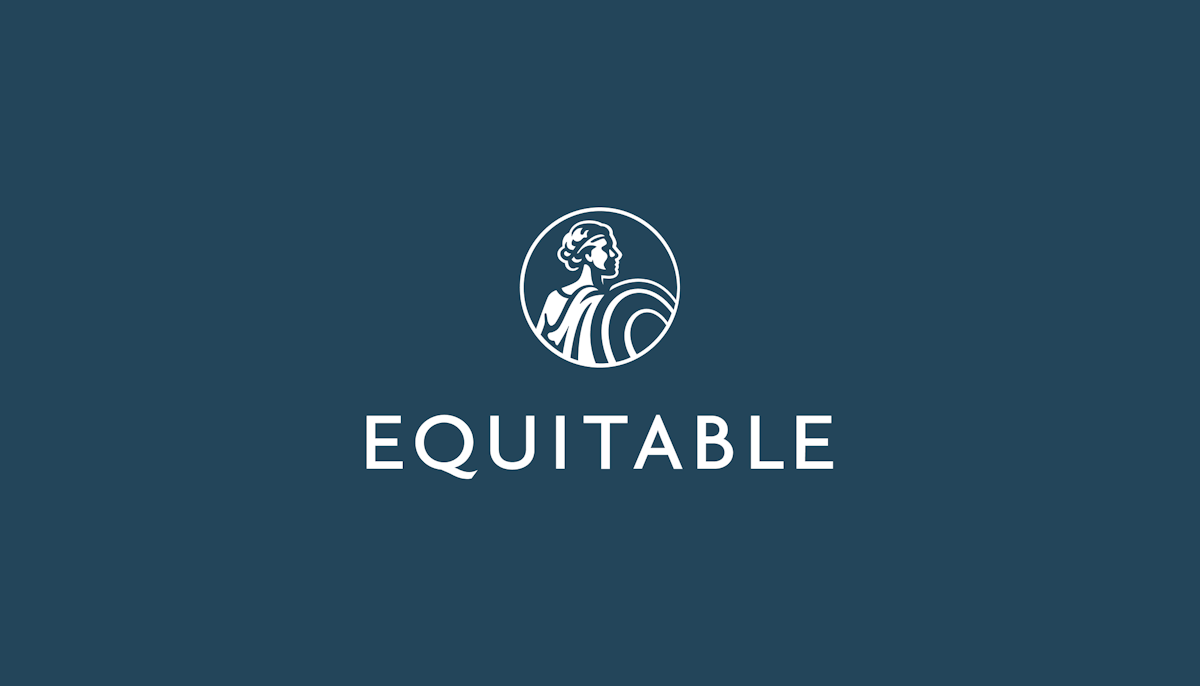[Page 179] Top 4,433 Merit Scholarships in February 2025
Updated Feb 22, 2025Apply below to the best Merit Scholarships in February 2025.
Sign up for Mos to get matched with scholarships and help applying!
No Scholarships Found
There are no open scholarships for this right now. Signup for Mos and we'll let you know as soon as one opens up.
Get StartedLearn more about Merit Scholarships
Merit-based scholarships are meant to reward a student’s accomplishments—usually academic accomplishments, but there are plenty of merit-based scholarships that reward things like artistic talent or sports prowess too!
No matter what your talents, interests, or accomplishments are, there are merit scholarships out there that fit you perfectly. You can improve your chances of winning merit scholarships by finding the opportunities that best match your qualifications and creating a strong and unique application that highlights those qualifications.
To refine your search and find merit scholarships that also match profile criteria like your grade level, major, home state, and more, get personalized scholarship recommendations on the Mos app.
For an overview of just a few great merit scholarships, plus some helpful tips for how to find and win merit scholarships, keep reading!
Ten Merit Scholarships that Mos Loves
The Clarkston Scholars Program awards $10,000 to a highly-driven, first-generation college student who excels in the classroom. You must be a sophomore attending a four-year college to qualify. The $10,000 scholarship award will be divided into $5,000 per year for junior and senior years. Essays, FAFSA, and recommendations are required. Interested? Apply!
Heinlein Society Scholarship Program
The Heinlein Society Scholarship Program offers $4,000 to a full-time undergraduate student enrolled in an accredited college that awards a Bachelor of Science (Engineering, Math, Physical or Biological Sciences). You must write an essay responding to one of the six suggested topics!
ATLAS Fellow Scholarship Program
The ATLAS Fellow Scholarship Program offers up to $20,000 to students in Chicago, IL, New York City, NY, and Teton County, WY, who are passionate about pursuing a career in financial services. To qualify, you must be a high school senior with a GPA of 3.5 or higher.
Employment Boost College Scholarship
The Employment Boost College Scholarship offers $1,000 to graduating high school students and students currently attending college with a minimum GPA of 3.6. One scholarship is open to students studying any major and is also eligible for students who are undecided about their course of study. The second scholarship is available to students who will major or are majoring in business or STEM (science, technology, engineering, or math). To apply, you need to submit a 500- to 1,000-word essay. Applications are accepted throughout the year.
Outstanding Undergraduate Horticulture Student Award
The Outstanding Undergraduate Horticulture Student Award officially recognizes exceptional undergraduate horticulture students in baccalaureate programs. Students should be selected on the basis of their academic achievements, leadership abilities, participation in campus/club activities, and service to their departments. To apply, you must be nominated by the department head or designated individual.
The Allman Family Business Development, Marketing, and Sales Scholarship Endowment
The Allman Family Business Development, Marketing, and Sales Scholarship Endowment is a $5,000 scholarship awarded to a graduate or undergraduate student enrolled in business management or another business-related program with a focus on sales, marketing, and business development. You are required to submit an additional essay about business development and your career aspirations. Sound perfect to you? Apply!
Rama Scholarships for the American Dream
This scholarship will be awarded to undergraduate or graduate students with a hospitality management major. To qualify, you must have a minimum overall GPA of 2.5, and be enrolled in a participating school. Preference is given to students of Asian or Indian descent. Visit the website to find the list of the Participating Schools.
The BigSun Athletic Scholarship offers $500 for student-athletes. All student-athletes are eligible regardless of the sport they are engaged in or the capacity in which they participate. To qualify, you must be a high school senior or attend college. To apply, you'll need to email your essay to athleticawards@bigsunathletics.com.
The Abbott and Fenner Scholarship offers $1,000 to high school juniors and seniors, as well as students currently enrolled in any accredited post-secondary institution. To apply, you must write an essay.
Dr. Yoji Kondo Scholarship provides $4,000 to full-time students attending a four-year college as sophomores, juniors, or seniors and majoring in engineering, math, biological, or physical sciences. To apply, you'll need to write an essay.
Tips and Strategies for Applying for Merit Scholarships
Here’s a guide of what to consider when you’re applying for scholarships, how to apply, and a few practical tips on how to set yourself apart as a strong applicant.
When to Start Applying for Scholarships? Right Now!
If you want to win as much money for college as possible, you should start your scholarship search as early as possible. That way, you can avoid missing out on deadlines and give yourself plenty of time to get your application materials together.
Basically, the best time to start applying to merit scholarships is right now!
Research Your Scholarships
The fact that you’re reading this guide means that you’re already doing your research. Great work!
Plenty of organizations and foundations offer merit scholarships to students in different fields of study, belonging to different demographics, or experiencing different life circumstances.
Use this page to search for merit scholarships that fit your profile, your financial goals, and your academic interests.
It pays to be strategic about the scholarships you apply for instead of just applying for every single listing without checking the requirements first. For example, if you’re majoring in photography, it would be a waste of your time to apply for a scholarship that’s only for political science majors.
It’s a Numbers Game
Ultimately, the best way to boost your odds of winning scholarship money is to apply for as many opportunities as you can.
This might seem to contradict the previous point, but it’s all about hitting the right balance between narrowing down your search and maximizing the amount of applications you actually send.
Think about it this way:
Applying for one scholarship you qualify for is better than applying for ten scholarships you don’t qualify for.
Applying for ten scholarships you do qualify for is way better than applying for just the one.
Make a Game Plan
Being a student can be overwhelming.
You’re busy all the time with commitments that include—but aren’t even limited to—class, clubs, studying, homework, social events, and jobs. It can be difficult to set aside time to apply for scholarships, which is why lots of students end up missing deadlines for scholarships they'd have a great chance of winning.
To avoid falling behind on your academic and financial goals, be intentional about how often you apply for scholarships, what time you work on your applications, and much time you spend on them. Think of it as starting a new, healthy habit—like flossing your teeth or meditating.
Set a personal goal for how many scholarships you want to apply for a week.
Then, find a time in your schedule where it would be easy to integrate your new scholarship habit. For example, if you study in the library every Tuesday night from 7-8, spend 15 minutes of that study time for scholarships. If you use Mos, that’s enough time to apply for 5 or more scholarships!
Track Your Scholarship Applications
Once you identify all the opportunities you qualify for and make an application plan, keep track of your scholarship journey. The Mos app makes this easy by letting you save scholarships and track your application status, but you can also do this on your own with a physical list or a spreadsheet online.
However you want to keep tabs on your scholarship applications, make sure to track their deadlines and application requirements.
Tailor Your Application
Every scholarship will ask for its own set of application materials. For example, a scholarship for history majors might ask you to write an essay about a historical figure that inspires you.
Because of this, you shouldn’t just reuse the exact same essay or personal statement for every scholarship you apply for.
Your application should highlight why you’re applying for the specific scholarship you’re applying for, not just why you’re applying for a scholarship in general. Explain how, if you receive the award, it will help you achieve a career or educational goal that aligns with the mission of the organization that’s offering the scholarship.
For example, if you’re applying to a scholarship that was founded by or dedicated to a particular woman, you should demonstrate that you’ve done research on who that woman is, explain how her legacy inspires you, and outline the ways the scholarship would help you continue that legacy.
That doesn’t mean that you have to start from scratch with every single application. You can use a previous essay or personal statement you’re proud of as a template for your future applications as long as you make meaningful changes to it that tailor it to a specific opportunity.
For more on how to write a good personal statement, check out these resources:
College Essay Guy: How to Write a Personal Statement (Tips + Essay Examples)
Highlight Your Achievements and Leadership Skills
A scholarship application isn’t the place to be humble.
A merit scholarship application might ask for examples of your leadership skills, community involvement, or other achievements. Scholarship committees don’t know anything about you outside of the contents of your application. If there’s a certain accomplishment or quality you’re proud of, the only way to make sure they know about it is to tell them.
That might seem obvious, but some students default to downplaying their own accomplishments. When you’re reading over your application form or your essay, make sure you include all of the (relevant) stuff you’d want the scholarship committee to take into consideration.
If you’re having trouble with this, try doing a brain dump on a sheet of paper. Write down every single extracurricular activity, school event, hobby, volunteer position, and leadership role you can remember having. Then, circle the ones you’re the most proud of in red and circle the ones that are relevant to the scholarship you’re applying for in blue. Anything you circled twice should definitely make its way into your application.
If that’s too hard, ask a friend, parent, teacher, or mentor to help you brainstorm a list of your accomplishments. The people who care about you will often be able to list a ton of amazing things about you that you might write off as “not that impressive.”
Prepare Your Documents and Transcripts
To apply for a merit scholarship, you might have to submit your academic transcripts, or other documentation that confirms your achievements.
If you’re in college, your transcript will probably be on your student portal. If not, email your academic advisor or registrar to ask for a copy of it.
If you’re in high school, check out PrepScholar’s guide on how to get your high school transcript.
Make sure you have all necessary documents ready before a scholarship’s deadline. Ask for your transcript a few weeks in advance to avoid missing out on money you qualify for.
Follow Directions Carefully
Scholarship applications often have specific formatting requirements.
A few examples of requirements you might run into:
Essay word count. Example: A scholarship that specifies that your essay can’t be over 500 words.
File format. Example: A scholarship that only accepts application forms that are uploaded as PDFs.
A portfolio. Example: An arts scholarship that requires you to include 3-5 charcoal drawings you’ve done, all scanned and uploaded as a single file.
If you don’t submit an application that matches all of the submission requirements, you run the risk of being disqualified, no matter how strong of an applicant you are.
Think about it from the scholarship committee’s perspective: if they get a lot of strong applications from students who are all equally deserving of the award, they might end up falling back on technicalities like word count to decide who to eliminate from the candidate pool. Don’t give them any reason to throw out your application.
Carefully read over all of the submission instructions when you’re putting together your application. If it helps, make a list of every separate requirement and check them off as you apply. Before you hit submit, check your application over one last time just to be safe.
Ask for Strong References
Some merit scholarships will ask you for letters of recommendation from professors, teachers, mentors, or other figures in your life.
When you’re deciding who to ask for a letter of recommendation, think about the people who you’ve known for a longer time and who have witnessed your accomplishments firsthand. A professor who’s seen you work hard and improve over the course of three years is probably a better option than a professor who only had you for one class two years ago.
You can set up your recommenders to write you the best letter possible by telling them what kind of qualities or achievements the scholarship provider is looking for, and by sending them a polite email reminder about your recommendation a couple weeks before the scholarship’s deadline.
You can also set yourself up to get a stronger recommendation by building your relationships with your potential references. Regularly going to a professor’s office hours is a great way to distinguish yourself as a diligent student to them.
Pay Attention to Deadlines
Scholarships usually have firm deadlines, and it’s pretty rare for them to accept late submissions.
We already mentioned the importance of tracking deadlines earlier, but one more tip to avoid missing deadlines is to set yourself a personal deadline that’s a day or two before the official deadline. That way, you can avoid the frantic race to finish your application before midnight on the due date, and you have a grace period of a few days to work on your application if life gets busy.
Other Sources of Financial Aid
Scholarships aren’t the only way to fund your college education.
For information on other financial aid resources, check out The Mos Financial Aid Roadmap: 8 Ways to Get Money for College.
Apply Faster on the Mos app
When you apply for more than one scholarship, you have to fill out the same information over and over again. Even if it only takes a few minutes every time, those minutes add up. Plus, it can make the whole process feel like a mind-numbing slog instead of an exciting chance to spotlight the achievements and qualities that make you special as an applicant.
When you sign up for Mos, you only have to fill out your information once. Then, every time you apply for a scholarship, the app auto-fills your information into the application. This means that applications can take as little as a few seconds! With every scholarship you apply to, your odds of winning money for college from one of them go up (remember, it’s partially a numbers game). And with every scholarship you apply to on Mos, the amount of time you save goes up right alongside those odds.
Related Scholarship Categories
FAQ for merit scholarships
Some tips for writing a strong application include being clear and concise, showcasing your unique qualities, tailoring your application to each scholarship, and proofreading for errors.
In your personal statement, include your academic achievements, extracurricular activities, career goals, and any challenges you've overcome. Make sure to convey your passion and commitment.
To apply for merit scholarships, you typically need to complete an application form, submit transcripts, and provide any required essays or letters of recommendation. Check the specific application process for each scholarship.
To increase your chances, focus on maintaining a strong academic record, participating in extracurricular activities, obtaining strong letters of recommendation, and crafting a compelling personal statement.
Yes, you can apply for multiple merit scholarships. In fact, applying for several can increase your chances of receiving financial aid.
While many merit scholarships do require a high GPA, some may consider other factors such as leadership skills, community service, or special talents. It's important to check the specific requirements for each scholarship.
Eligibility criteria for merit scholarships can vary widely but often include academic performance, standardized test scores, extracurricular involvement, and sometimes specific talents or skills.
Yes, merit scholarships are legitimate forms of financial aid offered by various institutions, organizations, and foundations to recognize and reward student achievements.
You can find merit scholarships by searching online scholarship databases, checking with your school’s financial aid office, and visiting websites like Mos that specialize in scholarship listings.
Merit scholarships are financial awards given to students based on their academic, artistic, athletic, or other achievements. These scholarships are typically awarded without regard to financial need.
Common mistakes to avoid include missing deadlines, failing to follow application instructions, submitting incomplete applications, and not proofreading your essays or personal statements.
Many merit scholarships have renewal requirements, which may include maintaining a certain GPA, completing a specific number of credit hours, or continuing to meet other eligibility criteria.
Common documents required for merit scholarship applications include transcripts, letters of recommendation, a personal statement or essay, and sometimes standardized test scores.
Resources for merit scholarships

What's the National Merit Scholarship, and how do I apply?
Learn about what the national merit scholarship is, who qualifies for it, and how you can apply.

Complete guide to the Equitable Excellence Scholarship
The Equitable Excellence Scholarship offers awards to students who have helped their communities prepare for financial or health risks.
Get personalized scholarships
Mos will match you with top scholarships and other financial aidWhat grade are you in?
What's your major?
What's your home state?
We’ve got $$$ with
your name on it
Explore $160 billion dollars worth of scholarships on the Mos app.
Get Started
What
students
are saying